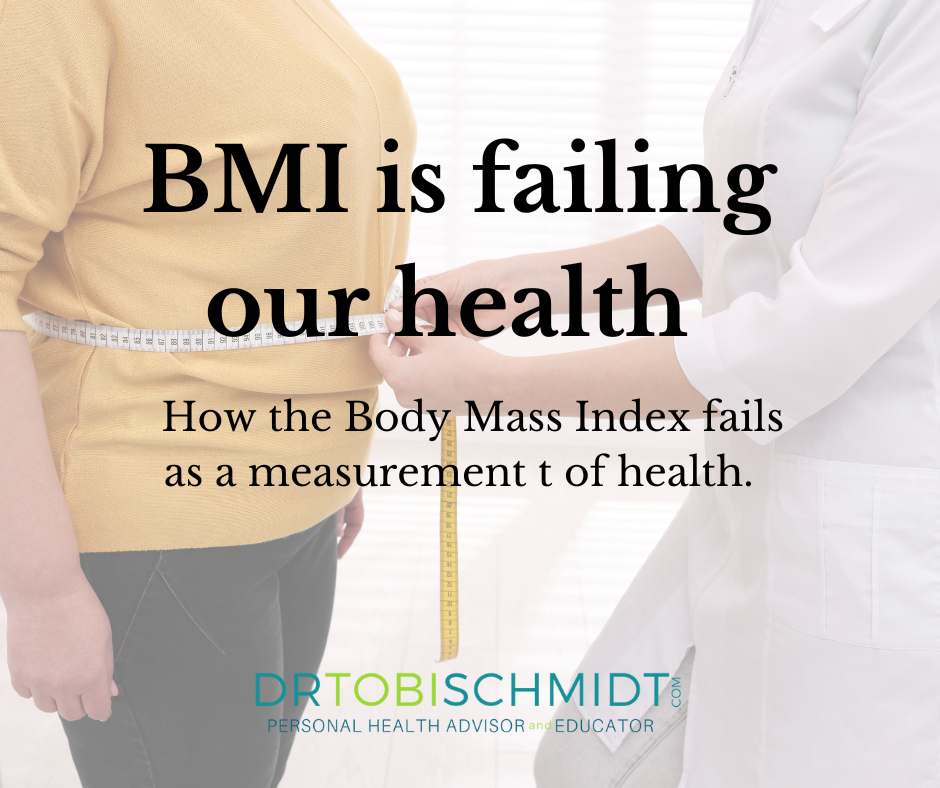
Introduction to BMI
Body Mass Index, or BMI, is a simple calculation using a person’s height and weight. The formula is BMI = kg/m^2, where kg is a person’s weight in kilograms, and m^2 is their height in meters squared. Despite its widespread use, BMI is a relatively blunt instrument in the arsenal of health diagnostics.
The Fallacy of Fat and Muscle Ratio in BMI
BMI does not differentiate between muscle and fat. This means a person with a high amount of muscle mass can have the same BMI as someone with a high amount of fat mass. The former could be a highly trained athlete, while the latter may be sedentary with a significantly different health profile. This lack of differentiation renders BMI incapable of accurately reflecting a person’s physical fitness or health status.
BMI and the Ignored Importance of Fat Distribution
Beyond the muscle-fat ratio, body mass index also fails to account for the distribution of fat in our bodies. There are two main types of fat: subcutaneous fat (the kind you can pinch) and visceral fat (fat that surrounds your organs). Visceral fat is more concerning from a health perspective as it’s associated with a higher risk of conditions like heart disease, type 2 diabetes, and inflammation. A person with a ‘healthy’ BMI could carry a dangerous amount of visceral fat, again illustrating the limits of BMI as a diagnostic tool. Someone who is overweight with a high BMI may have a low visceral fat percentage making this individual relatively healthy compared to someone of the same height and weight with a higher visceral fat percentage. You get the idea, right?
BMI: A Poor Predictor of Health
Because BMI doesn’t consider muscle-fat ratio or fat distribution, it’s not a reliable indicator of health. A person with a high BMI might be an athlete with a lot of muscle mass, not an individual with an excess of body fat. Similarly, someone with a low BMI might be simply lean and fit, or they could be undernourished or suffering from a health condition that causes weight loss. And what does it say about individuals that are overweight? Are all overweight or obese individuals the same? Of course not! But BMI treats them as such.
The Use and Misuse of BMI in Research
Despite its shortcomings, BMI is widely used in research studies as a criterion to define overweight and obese individuals. It’s a simple, easy-to-calculate number, making it appealing for large population studies. However, its simplicity is also its downfall. The use of BMI as a primary measure of obesity risks oversimplifying the complex nature of human health and body composition. Data clearly show differences in overweight and obese individuals based on other criteria, like blood pressure, visceral and subcutaneous fat distribution, muscle mass, and blood values like vLDL, hsCRP, triglycerides, and glucose, to name just a few.
BMI’s Shortcomings in Clinical Studies
When BMI is used as a measure of overweight or obesity in clinical studies, it falls short. It doesn’t reflect someone’s level of adiposity (the total amount of fat in a body), which is a more direct measure of health risks associated with obesity. This can lead to misclassification of individuals and skewed study results, painting an inaccurate picture of health trends and risks. Unfortunately, most studies of overweight and obese individuals rely on BMI, which calls into question the validity of their results. In an age when a person’s gut microbiome can be sequenced and a patient’s individual cells can be analyzed, it’s time that we toss the BMI measurement in favor of a better, more informative measurement.
Take the Next Step with Our Free Course

If this has sparked your interest and you’re ready to delve deeper into your personal health journey, I have just the tool for you. My free course, “Gut Check for Overweight Women,” is designed to provide you with the resources you need to better understand your body and make informed decisions about your health. This course goes beyond the simplistic measure of BMI and delves into the complex factors that contribute to overall health.
Interested? Sign up for our “Gut Check for Overweight Women” course [here]. It’s time to stop relying on inadequate measures and start taking control of your health. Remember, knowledge is power!
Until next time, stay well!
Dr. Tobi
